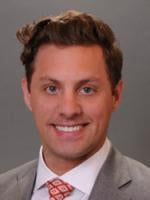CMS just released the 2020 final rule with changes to remote patient monitoring (RPM), officially titled “Chronic Care Remote Physiologic Monitoring,” reimbursed under the Medicare program, as part of the Physician Fee Schedule changes. The changes, proposed earlier this year, have been hotly-anticipated by digital health companies hoping to see more clarity and flexibility for RPM services.
CMS finalized two changes, both of which are effective January 1, 2020:
-
RPM can be furnished “incident to” under general supervision; and
-
CPT Code 99458 is a new add-on code for patients who receive an additional 20 minutes of RPM services in a given month (i.e., 40 minutes of RPM services).
These changes come at the heels of OIG’s proposal to allow providers to waive patient cost-sharing (e.g., co-pays) for RPM services.
RPM Can Be Delivered “Incident To” Under General Supervision
When CMS first created the RPM codes, they stated RPM could not be delivered “incident to” a physician’s service, reasoning that CPT code 99457 describes professional time and “therefore cannot be furnished by auxiliary personnel “incident to” a practitioner’s professional services.” An “incident to” service is one that is performed under the supervision of a physician (broadly defined to include qualified healthcare professionals), and billed to Medicare in the name of the physician, subject to certain requirements. CMS later issued a technical correction, allowing “incident to” billing of RPM services by auxiliary personnel under direct supervision. However, direct supervision means the physician and auxiliary personnel must be in the same building at the same time (albeit not the same room), a requirement many RPM companies felt stifled their business model potential. General supervision, in contrast, as defined by Medicare, does not require the physician and auxiliary personnel to be in the same building at the same time, and the physician could instead use telemedicine to exert general supervision over the auxiliary personnel.
Industry insiders advocated for changing the RPM rules to expressly allow “incident to” billing of RPM under general supervision and CMS concurred. Because care management services include establishing, implementing, revising, or monitoring treatment plans, as well as providing support services, and because RPM services include establishing, implementing, revising, and monitoring a specific treatment plan for a patient related to one or more chronic conditions that are monitored remotely, CMS will now include CPT codes 99457 and 99458 as designated care management services. As designated care management services, RPM can be furnished under general supervision. The regulation, at 42 CFR § 410.26(b)(5), states that designated care management services can be furnished under the general supervision of the “physician or other qualified health care professional (who is qualified by education, training, licensure/regulation and facility privileging)” when these services or supplies are provided “incident to” the services of a physician or other qualified healthcare professional. (See also 2019 CPT Codebook, page xii.)
Starting January 1, 2020, RPM services reported with CPT codes 99457 and 99458 may be billed “incident to” under general supervision. The physician or other qualified healthcare professional supervising the auxiliary personnel need not be the same individual treating the patient more broadly. However, only the supervising physician or other qualified healthcare professional may bill Medicare for “incident to” services.
Changing the RPM rules to allow “incident to” billing under general supervision greatly expands the potential operations and business models associated with RPM services, thereby allowing more patients to enjoy the quality-improving benefits of remote patient monitoring.
New RPM Code for Extra 20 Minutes
CPT code 99457 will now cover the initial 20 minutes of monitoring services, while the new CPT code 99458 is used as an add-on code for those patients who receive an additional 20 minutes of RPM. The new code descriptors are as follows:
-
CPT code 99457 (Remote physiologic monitoring treatment management services, clinical staff/physician/other qualified health care professional time in a calendar month requiring interactive communication with the patient/caregiver during the month; initial 20 minutes)
-
CPT code 99458 (Remote physiologic monitoring treatment management services, clinical staff/physician/other qualified health care professional time in a calendar month requiring interactive communication with the patient/caregiver during the month; additional 20 minutes)
Additional Guidance
No RPM Billing for RHCs or FQHCs. CMS made clear that RPM services are not separately billable under Medicare for rural health centers (RHCs) or federally qualified health centers (FQHCs). RHCs are paid an all-inclusive rate when a medically necessary, face-to-face visit is furnished by an RHC practitioner. FQHCs are paid the lesser of their charges or the FQHC Prospective Payment System rate when a medically-necessary, face-to-face visit is furnished by an FQHC practitioner. Both the RHC all-inclusive rate and the FQHC Prospective Payment System rate include all services and supplies furnished “incident to” the visit. Services such as RPM are not separately billable because they are already included in the RHC all-inclusive rate or FQHC Prospective Payment System payment, CMS explained.
Possible Future FAQs? Several comments were submitted asking CMS to provide guidance on technical questions for the RPM codes, such as billing and documentation requirements. Commenters asked CMS to further define what is meant by “physiologic parameters”, “digitally transmitted data” (as opposed to patient-reported data), “medical device,” and “interactive communication.” Commenters also asked CMS to expand the list of practitioners allowed to furnish and bill for RPM services. One commenter suggested the codes should state that an established patient-practitioner relationship must exist prior to billing for RPM services. Some commenters questioned if the codes could be used for patients without chronic conditions. While CMS did not answer these questions, it understands the frustration commenters express with the current code descriptors and plans to consider these questions in future rulemaking.




 />i
/>i

